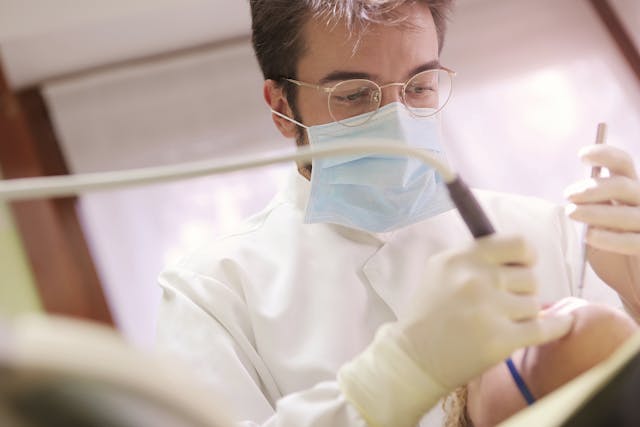
When preparing for dental implant surgery, especially if sedation is involved, careful planning can make a significant difference in the success and comfort of your procedure. Proper preparation can help mitigate anxiety and ensure that the surgical process goes smoothly. This article provides essential tips and advice for preparing for sedation and dental implants.
Pre-Surgery Preparation
Before your dental implant procedure, especially if sedation is required, it’s crucial to prepare adequately to ensure a smooth experience. Taking the necessary steps in the days and weeks leading up to the surgery can help avoid complications and promote optimal healing.
- Fill Prescriptions in Advance: Make sure to obtain and fill all prescribed medications before your surgery date. Having pain management and any other necessary medications ready will help you manage discomfort more effectively and avoid last-minute stress.
- Arrange Transportation: If you are undergoing sedation, you will need a responsible adult over the age of 18 to drive you to and from the appointment. This person should also be available to stay during the procedure in case you need additional assistance.
- Complete Pre-Operative Testing: Ensure that any required pre-operative tests are completed. This includes checking any current medications, medical conditions, or adjustments needed if you are on blood thinners or have diabetes.
- Address Smoking: If you smoke, it’s advisable to stop before your surgery. Smoking can interfere with the healing process and increase the risk of complications, including implant failure.
- Discuss Natural Medications: Inform your dentist about any natural supplements or vitamins you are taking. Certain supplements can affect healing and blood clotting, so it’s essential to discuss these with your healthcare provider.
Days Leading Up to Surgery
In the days leading up to your dental implant procedure, making a few adjustments can help your body prepare for surgery and improve recovery.
- Cut Back on Caffeine: While it’s okay to have your regular cup of coffee, reducing caffeine intake can help minimize anxiety and ensure better hydration.
- Stay Hydrated: Proper hydration is vital for overall health and can aid in faster recovery. Drink plenty of water in the days leading up to your surgery to keep your body in optimal condition.
- Avoid Alcohol: Refrain from consuming alcohol at least 24 hours before your surgery. Alcohol can interfere with the effectiveness of sedation and may slow down the healing process.
The Night Before Surgery
Proper preparation the night before your dental implant surgery is essential to ensure the procedure goes as planned and to minimize potential risks.
- Follow Medication Instructions: If you have been prescribed medication to take the night before the surgery, ensure you follow the instructions carefully. This helps in managing any pre-surgery anxiety and ensures you are ready for the procedure.
- Confirm Transportation: Double-check that your transportation arrangements are in place. Your driver should be informed about the time and place for both the surgery and pick-up afterward.
- Avoid Eating and Drinking: Do not eat or drink anything after midnight before your surgery, except for a small sip of water if you need to take medication. This helps prevent nausea and aspiration during the procedure.
- Prepare Comfortable Clothing: Choose loose-fitting, comfortable clothes for the day of the surgery. Avoid wearing jewelry or painted nails, as these can interfere with monitoring devices and may cause inconvenience.
Day of Surgery
On the day of your dental implant procedure, your comfort and safety are priorities. Proper preparation will contribute to a smoother surgical experience and recovery.
- Wear Comfortable Clothing: Opt for a short-sleeve shirt and comfortable pants. This allows for easy monitoring of blood pressure and keeps you comfortable throughout the procedure.
- Prepare for Cold: Since sedation can make you feel cold, bring along a light jacket or sweater. You will be provided with blankets, but layering can help keep you comfortable.
- Avoid Heavy Make-Up and Jewelry: Leave jewelry and make-up at home. Painted nails can affect the ability to monitor your oxygen levels, so it’s best to go without them.
- Follow Pre-Operative Instructions: Ensure you adhere to any final instructions given by your dental team. This includes arriving on time and following any specific pre-surgery guidelines.
Choosing a Trusted Dental Clinic
Selecting a trusted dental clinic is a critical step in ensuring the success of yourdental implants Navan. A reliable clinic not only offers skilled professionals but also ensures a comfortable and safe experience throughout the process.
- Check Credentials and Experience: Verify that the clinic has qualified and experienced professionals specializing in dental implants. Look for credentials, certifications, and reviews from other patients to gauge their expertise.
- Assess the Facility: Visit the clinic beforehand to assess the facility’s cleanliness and equipment. A modern, well-maintained clinic indicates a commitment to high standards of care.
- Review Patient Testimonials: Look for testimonials and reviews from past patients to get a sense of their experiences. Positive feedback and successful case studies can provide assurance of the clinic’s reliability.
- Evaluate the Consultation Process: A trusted clinic will offer a thorough consultation to discuss your needs and answer all your questions. This helps in understanding the procedure and ensuring that you are comfortable with the treatment plan.
- Consider Aftercare Services: Choose a clinic that provides comprehensive aftercare services. Effective follow-up and support are essential for a smooth recovery and successful outcome of your dental implants.
By following these guidelines, you can help ensure a successful and comfortable dental implant procedure. Whether you’re having dental implants in Navan or another location, proper preparation and choosing a trusted dental clinic are key to achieving the best outcome for your surgery and recovery.

